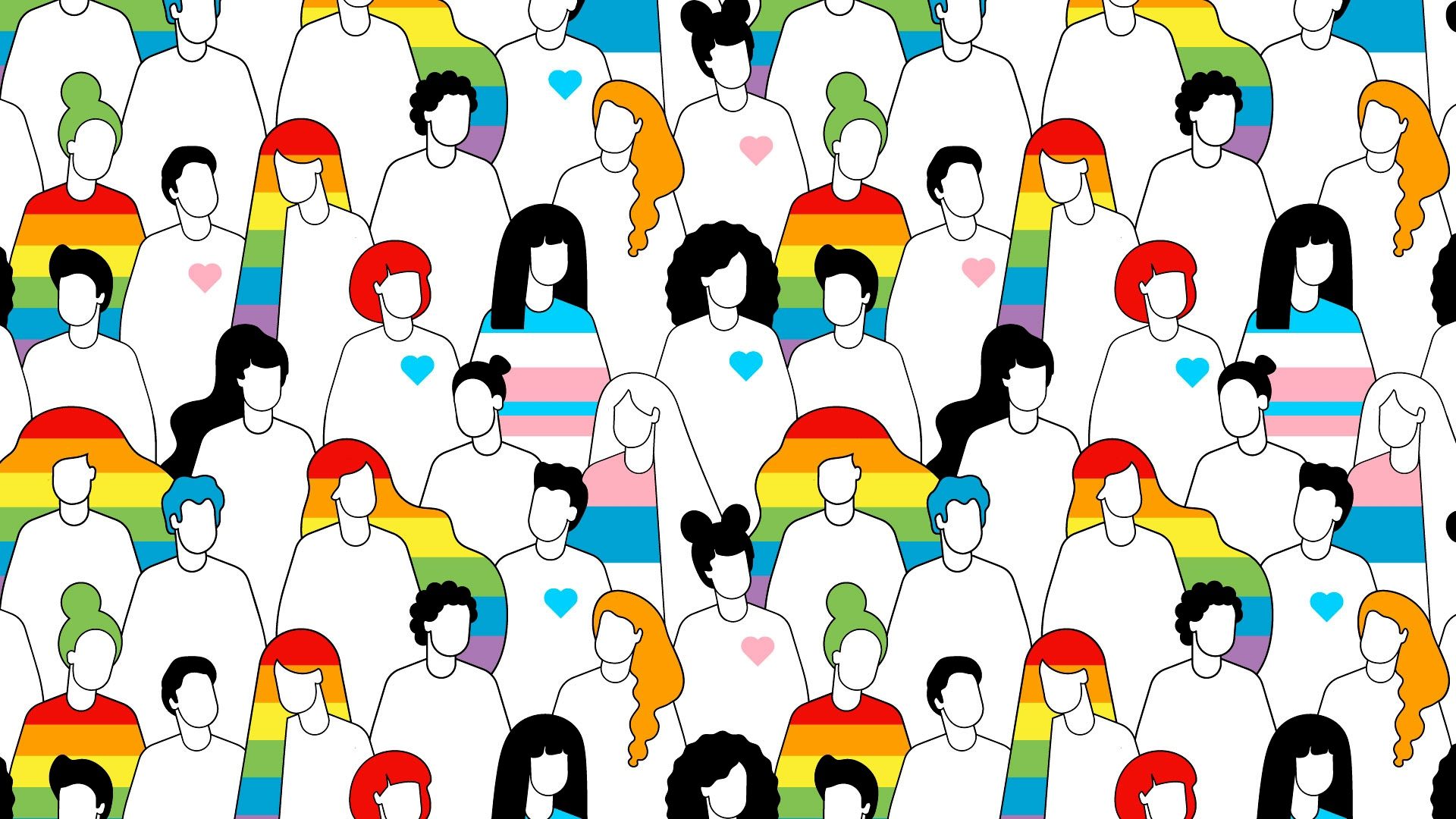- April 21, 2023
- By Rachael Grahame ’17
Amid an unprecedented surge of anti-LGBTQ+ bills in state legislatures, a University of Maryland researcher’s new study finds that such current events add to the distressing litany of daily thoughts and experiences that lead LGBTQ+ teens to report having thoughts of suicide and self-injury.
A first-of-its-kind study led by psychology Associate Professor Ethan Mereish recently published in the Journal of Psychopathology and Clinical Science asked 12- to 19-year-old LGBTQ+ teens to fill out a brief “daily diary” survey for 28 days. The 92 teen participants identified the unique kinds of stress they experience as a member of the LGBTQ+ community, aka “minority stress,” and assessed and recorded any thoughts of suicide and/or nonsuicidal self-injury.
“All of us experience stress … . But on top of those general stressors, LGBTQ+ people experience unique and chronic stressors related to their identities as a result of heterosexism and cissexism, that then put them at greater risk for poor health outcomes,” Mereish said.
On days where participants reported experiencing more minority stressors, they also reported more thoughts of suicide and nonsuicidal self-injury. The stresses came from a variety of sources, Mereish said, such as “interpersonally from others like microaggressions or discrimination, from the extent that they feel the need to hide or conceal their identity, and from the extent that they feel bad about their identity because of internalized stigma.”
This study is among the first to empirically support the connection between minority stress and suicide and/or nonsuicidal self-injury ideation on a day-to-day basis. The majority of related projects take a more cross-sectional or long-term longitudinal approach, he said.
“A limitation of these longitudinal studies is that suicidality is a lot more dynamic; feeling suicidal is a lot more dynamic and a lot more frequent for some people than once every six to 12 months,” he added. “When you wait six months to a year, you miss out on a lot of important information.”
Studies like Mereish’s provide vital information that can’t be derived any other way, but they often aren’t conducted because they’re tricky.
For example, for this study, Mereish and his research team reviewed survey responses each morning, and contacted participants whose responses they felt necessary to follow up on. If needed—and was so for one study participant—the teen’s guardians were called, then the in-distress teen referred for inpatient psychiatric care.
“We want to understand how these processes unfold naturally over time and day-to-day without us intervening,” he said. “We want to understand how minority stress serves as a risk factor for suicide, but at the same time, we want to make sure the youth are safe, and so we have to intervene if they engage in nonsuicidal self-injury like cutting or other self-harming behaviors, or attempted suicide.”
Mereish said the study’s findings support increasing interventions at every level—in schools, mental health professions, and state and local governments—to head off harm as bills to ban gender-affirming care to trans youths, limit discussion of LGBTQ+ issues in classrooms and prevent trans youths from participating in sports that match their gender identity progress in some states.
“We have a lot of work to do.”
If you need help, reach the National Suicide Prevention Lifeline at 1.800.273.8255. In the U.S., Crisis Text Line can be reached by texting HOME to 741741.
April is Pride Month at the University of Maryland, with a 2023 theme of “Love Me Tender, Love Me Queer.” For a full listing of campus events, visit the Stamp Student Union website.
Topics
Research